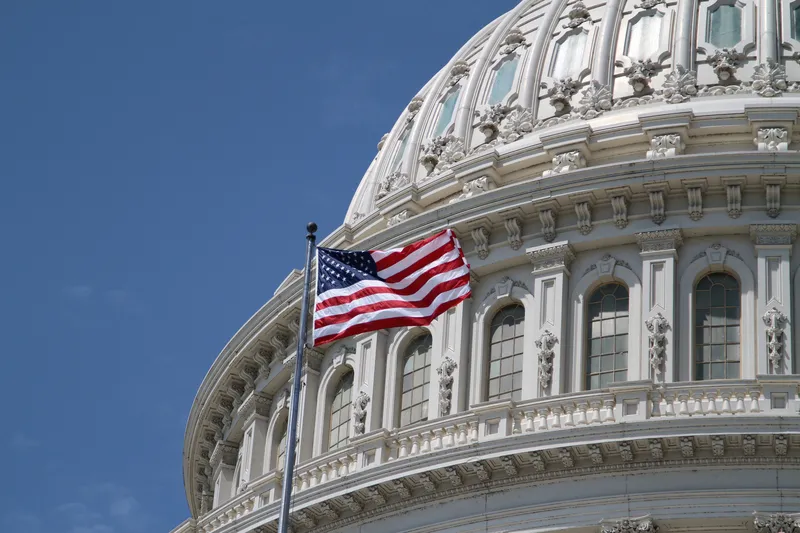The International Bridge, Tunnel and Turnpike Association (IBTTA) has responded to the joint report by the Eno Center for Transportation and the American Society of Civil Engineers (ASCE), which highlights the benefits of life cycle cost analysis in planning transportation infrastructure projects.
Executive director and CEO Pa trick D. Jones said: “We commend ENO and ASCE for issuing an important report, Maximizing the Value of Investments Using Life Cycle Cost Analysis. This report is especially timely
October 3, 2014
Read time: 3 mins
RSSThe International Bridge, Tunnel and Turnpike Association (63 IBTTA) has responded to the joint report by the Eno Center for Transportation and the 5515 American Society of Civil Engineers (ASCE), which highlights the benefits of life cycle cost analysis in planning transportation infrastructure projects.
Executive director and CEO Pa trick D. Jones said: “We commend ENO and ASCE for issuing an important report, Maximizing the Value of Investments Using Life Cycle Cost Analysis. This report is especially timely given the severe funding constraints that state and local governments face in trying to build and maintain aging infrastructure.”
Life cycle cost analysis (LCCA) is a data-driven tool that provides a detailed account of the total costs of a project over its expected life.
In the spring of 2014, the American Society of Civil Engineers (ASCE), in conjunction with the Governing Institute, commissioned surveys evaluating to what extent governmental entities across the United States use LCCA in their decision-making process. Nearly all respondents agreed that LCCA should be a part of the decision-making process, yet only 59 per cent said that they currently employ some form of it.
The report makes a series of recommendations for the use of LCCA in transportation, and significantly concludes that when making funding decisions under constrained budgets, it is tempting to place high importance on the up-front costs and pay little attention to costs in the future. This is short-sighted. The United States needs to begin thinking more strategically about how it maintains and operates its transportation network, and manages its assets in the future. With the focus of funding shifting toward system preservation, greater use of LCCA can ensure sustainability of future budgets and better management of our vital infrastructure.
Jones said, “Much of the transportation debate in Washington and around the country has focused on the huge unmet needs and large funding gaps, which has caused policy makers and planners to give a lot of attention to new revenues. While net new revenues are important, this report shines a bright light on the principle that making a larger upfront investment in building new or repairing old infrastructure can be the smartest move because the overall investment will be smaller over the life of the project. That principle deserves much greater attention than it is receiving today.”
“Life cycle cost analysis is a critical tool in the toolbox of transportation planners and policy makers,” Jones concluded. “By relying more and more on LCCA in the transportation planning process, states and localities can avoid the surprise of out-year cost balloons that result from less robust upfront analysis.”
Executive director and CEO Pa trick D. Jones said: “We commend ENO and ASCE for issuing an important report, Maximizing the Value of Investments Using Life Cycle Cost Analysis. This report is especially timely given the severe funding constraints that state and local governments face in trying to build and maintain aging infrastructure.”
Life cycle cost analysis (LCCA) is a data-driven tool that provides a detailed account of the total costs of a project over its expected life.
In the spring of 2014, the American Society of Civil Engineers (ASCE), in conjunction with the Governing Institute, commissioned surveys evaluating to what extent governmental entities across the United States use LCCA in their decision-making process. Nearly all respondents agreed that LCCA should be a part of the decision-making process, yet only 59 per cent said that they currently employ some form of it.
The report makes a series of recommendations for the use of LCCA in transportation, and significantly concludes that when making funding decisions under constrained budgets, it is tempting to place high importance on the up-front costs and pay little attention to costs in the future. This is short-sighted. The United States needs to begin thinking more strategically about how it maintains and operates its transportation network, and manages its assets in the future. With the focus of funding shifting toward system preservation, greater use of LCCA can ensure sustainability of future budgets and better management of our vital infrastructure.
Jones said, “Much of the transportation debate in Washington and around the country has focused on the huge unmet needs and large funding gaps, which has caused policy makers and planners to give a lot of attention to new revenues. While net new revenues are important, this report shines a bright light on the principle that making a larger upfront investment in building new or repairing old infrastructure can be the smartest move because the overall investment will be smaller over the life of the project. That principle deserves much greater attention than it is receiving today.”
“Life cycle cost analysis is a critical tool in the toolbox of transportation planners and policy makers,” Jones concluded. “By relying more and more on LCCA in the transportation planning process, states and localities can avoid the surprise of out-year cost balloons that result from less robust upfront analysis.”







